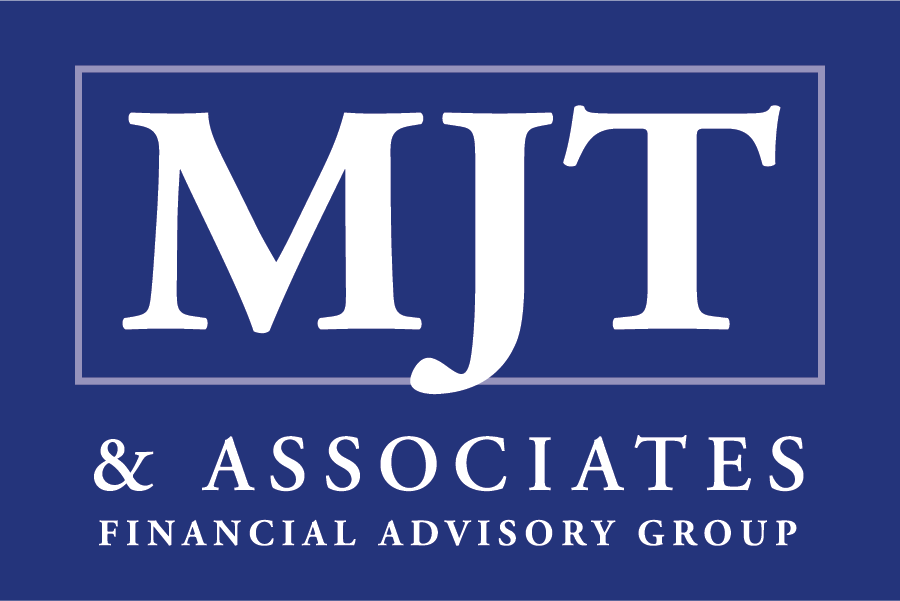Are you approaching retirement with a mix of excitement and apprehension? You're not alone. Many retirees and pre-retirees find themselves grappling with uncertainty when it comes to their financial future. The prospect of transitioning from a steady paycheck to relying on savings and investments can be daunting, often leading to a lack of confidence in financial decisions.
At MJT & Associates, we understand the challenges you face as you prepare for this significant life transition. We've guided countless clients through the complexities of retirement planning, helping them navigate the emotional and financial aspects of this journey. Our experience has shown us that with proper planning and support, you can approach retirement with confidence and peace of mind.
Financial planning for retirement is more than just crunching numbers; it's about creating a roadmap that aligns with your unique goals and values. Whether you're concerned about maintaining your lifestyle, managing healthcare costs, or leaving a legacy for your loved ones, a comprehensive retirement plan can address these concerns and more. In this article, we'll explore key strategies to help you maximize your retirement savings, create sustainable income streams, and make informed decisions about your financial future. From assessing your retirement needs to optimizing Social Security benefits, we'll provide you with practical insights to empower your retirement planning journey.
As we delve into these topics, remember that retirement planning is not a one-size-fits-all approach. Your plan should be as unique as you are, reflecting your individual circumstances, goals, and dreams for the future. Let's embark on this journey together, exploring how you can take control of your financial future and create the retirement you've always envisioned.
Understanding Retirement Needs
Understanding your retirement needs is a crucial first step in creating a solid financial plan for your future. This process involves taking a comprehensive look at your current financial situation and envisioning the lifestyle you desire in retirement. By assessing these factors early, you can set realistic goals and take proactive steps to achieve them.
One of the most important aspects of evaluating your retirement needs is estimating your future expenses. Consider not only your basic living costs but also potential healthcare expenses, travel plans, and any hobbies or activities you wish to pursue. It's essential to factor in inflation when making these projections, as the cost of goods and services typically increases over time. A general rule of thumb is to assume an annual inflation rate of 2-3%, but this can vary depending on economic conditions.
Next, evaluate your potential sources of retirement income. This may include Social Security benefits, pension plans, personal savings, and investment accounts. Understanding how these various income streams work together can help you identify any gaps in your retirement funding. For example, while Social Security provides a foundation, it's often not sufficient to maintain your desired lifestyle on its own. This is where personal savings and investments play a crucial role in supplementing your retirement income.
Early planning is key to ensuring a comfortable retirement. The power of compound interest means that even small contributions made early in your career can grow significantly over time. Whether you're just starting your career or nearing retirement age, it's never too early or too late to begin assessing your retirement needs. By taking stock of your current financial situation, setting clear goals, and regularly reviewing your progress, you can make informed decisions that will shape your financial future. Remember, retirement planning is an ongoing process, and it's important to remain flexible and adjust your strategy as your circumstances and goals evolve over time.
Strategies for Maximizing Retirement Savings
Now that we've explored your retirement needs, let's focus on strategies to maximize your retirement savings. Building a robust nest egg requires a proactive approach and smart financial decisions. One of the most effective ways to boost your retirement savings is by maximizing contributions to your retirement accounts. If your employer offers a 401(k) plan, aim to contribute at least enough to take full advantage of any matching contributions. This is essentially free money that can significantly accelerate your savings growth. For those with additional savings capacity, consider maxing out your annual contributions to both your 401(k) and IRA accounts. Remember, these accounts offer tax advantages that can help your money grow more efficiently over time.
Diversification is another crucial strategy for maximizing your retirement savings. By spreading your investments across different asset classes, such as stocks, bonds, and real estate, you can potentially reduce risk while capturing growth opportunities. At MJT & Associates, we understand that determining the right asset allocation can be challenging. That's why we work closely with our clients to create personalized investment strategies that align with their risk tolerance and retirement goals. It's important to regularly review and rebalance your portfolio to ensure it remains aligned with your objectives as you progress through different life stages.
While focusing on growth is important, it's equally crucial to avoid common pitfalls that can derail your retirement savings plan. One frequent mistake is neglecting to account for inflation, which can erode the purchasing power of your savings over time. Another is taking on too much risk in pursuit of higher returns, especially as you near retirement. It's also vital to manage debt effectively, as high-interest debt can significantly impede your ability to save. Consider developing a debt repayment strategy that balances paying down high-interest debt with continuing to save for retirement. Remember, retirement planning is not just about accumulating assets; it's about creating a comprehensive financial strategy that addresses all aspects of your financial life.
Navigating Retirement Income
As you transition into retirement, managing your income becomes a crucial aspect of maintaining financial stability and peace of mind. One of the primary challenges retirees face is creating a sustainable withdrawal plan that ensures their savings last throughout retirement. At MJT & Associates, we recommend a flexible approach that considers factors such as market conditions, inflation, and your changing needs. A common strategy is the 4% rule, which suggests withdrawing 4% of your portfolio in the first year of retirement and adjusting for inflation in subsequent years. However, it's important to remember that this is just a guideline, and your personal withdrawal strategy should be tailored to your unique circumstances.
Optimizing your Social Security benefits is another key component of retirement income planning. The age at which you start claiming benefits can significantly impact your lifetime income. While you can begin receiving benefits as early as age 62, delaying until your full retirement age or even up to age 70 can result in substantially higher monthly payments. We often work with our clients to analyze various claiming strategies, considering factors such as health, life expectancy, and overall financial situation to determine the most advantageous approach.
Diversifying your income sources can provide additional financial security in retirement. This might include exploring options such as part-time work, rental income from real estate investments, or annuities that offer guaranteed income streams. Each of these options comes with its own considerations, and it's important to carefully evaluate how they fit into your overall retirement plan. Remember, retirement doesn't necessarily mean ceasing all work; many retirees find fulfillment and financial benefits in pursuing part-time or consulting opportunities in their field of expertise.
Ongoing financial management is crucial throughout retirement, as your needs and market conditions will inevitably change over time. Regular reviews of your investment portfolio, withdrawal strategy, and overall financial plan can help ensure you stay on track to meet your goals. This is where working with a financial advisor can be particularly beneficial. At MJT & Associates, we provide our clients with continuous support and guidance, helping them navigate the complexities of retirement income management and make informed decisions as their circumstances evolve. Our commitment is to be your trusted partner throughout your retirement journey, providing the expertise and personalized advice you need to enjoy a financially secure and fulfilling retirement.











